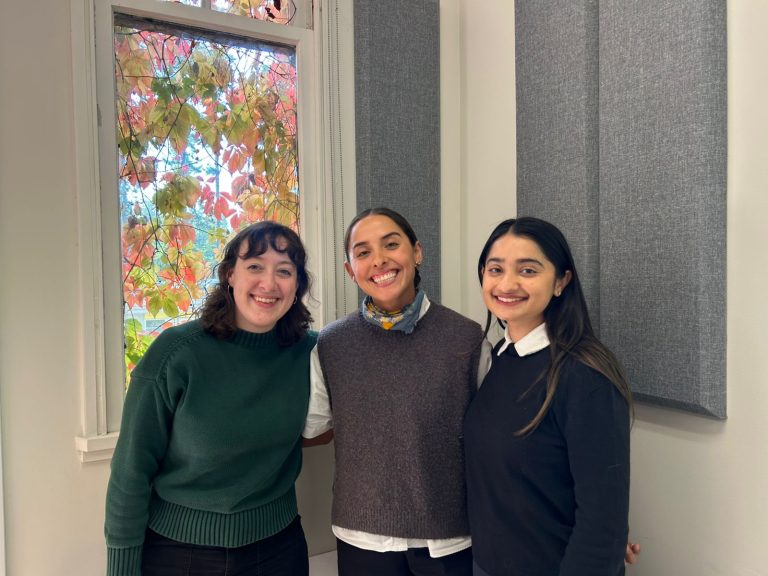

On October 21, EDGES members Leila Harris, Rachel Stern, Manvi Bhalla, and Renata Rovelo (along with artist, director, and creator Kendra Fanconi) were featured in a panel discussion entitled: Exploring Creative and Narrative Methodologies for Climate and Environmental Justice.
Congrats, Leila, Manvi, Rachel and Renata! More information on the panel discussion can be found below, and at this link.
Talk title:
Exploring Creative and Narrative Methodologies for Climate and Environmental Justice
Talk Abstract:
In recent scholarship on environmental-social relations, story has been a focal point for understanding how climate and environmental inequities are experienced in embodied and emotional ways (Harris, 2021). Storytelling methods such as oral histories, narrative and fictional expressions, visual methods using photographs, and creative mapping also can become ways for communities and organizations to leverage counter-narratives for social transformation and justice (Houston, 2013; Gonzalez-Hidalgo et al., 2022; de Vet, 2013). This panel focuses on storytelling’s role in understanding and responding to climate and environmental injustices.
The panel asks: How can a focus on method and different types of storytelling about social relationships with the environment? What types of oral, visual, written, and performance-based methods are scholars and communities using to tell stories about their relationships to environmental and social justice? How are understandings of climate risk formed and negotiated through storytelling practices?
The participants on this panel will draw from different experiences with oral methodologies, community organizing, performance and theatre, and place-based narratives. They bring expertise from diverse environmental and social contexts on topics such as Indigenous climate action; water justice; intersectional environmental justice in the face of toxic exposure; immersive artistic practice, theatre, and housing and extreme heat. The goal of this panel is two-fold: first, to reflect on the potential and difficulties of using storytelling as a method, and second, to inspire practical methodology sharing across different environmental and geographical contexts.